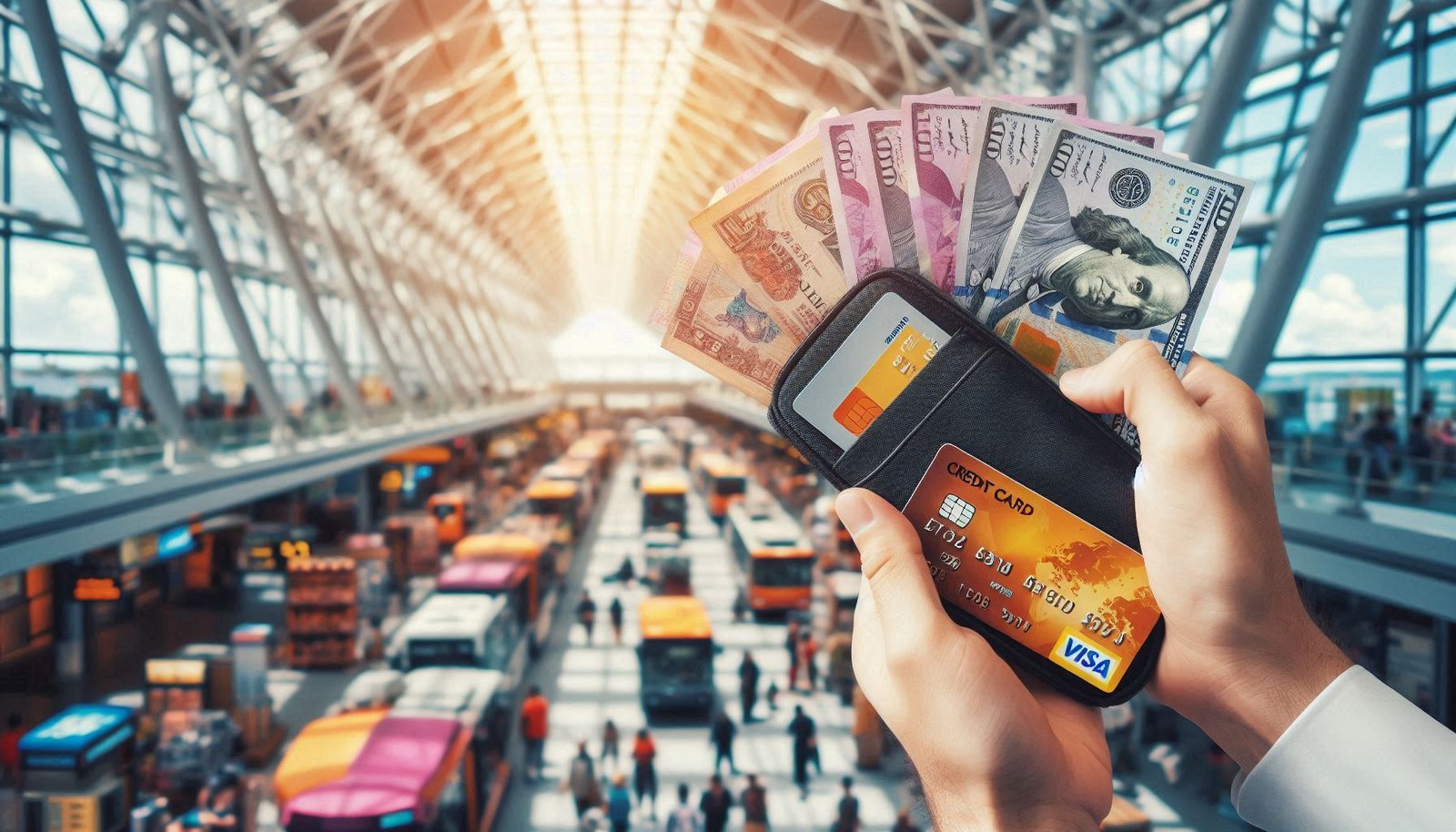Is It Cheaper to Use Cash or Credit Abroad? A Currency Exchange Comparison
Traveling abroad comes with many financial decisions, and one of the most important is determining the best way to pay for expenses. Should you use cash or credit? Understanding the costs and benefits of each payment method can save you money on currency exchange fees and foreign transaction charges. In this guide, we’ll compare the costs of using cash versus credit while traveling internationally.
Cash vs. Credit Abroad: Which One Saves You More Money?
When traveling abroad, both cash and credit cards have their advantages and disadvantages. However, the key factor in determining which is cheaper depends on exchange rates, transaction fees, and security concerns.
Using Cash Abroad: Pros and Cons
Pros of Using Cash:
- Better Exchange Rates at Banks: If you exchange currency at your local bank before departure, you may get a better exchange rate than airport kiosks or hotels.
- Widely Accepted: Some small businesses, markets, and rural areas may only accept cash.
- Avoids Foreign Transaction Fees: Credit cards often charge a foreign transaction fee of 1-3%, whereas cash payments bypass this extra charge.
Cons of Using Cash:
- Higher Fees at ATMs and Exchange Kiosks: Withdrawing cash from an ATM abroad can incur withdrawal fees and unfavorable exchange rates. Currency exchange kiosks, especially in tourist areas, often have poor rates and additional service charges.
- Risk of Theft or Loss: Carrying large amounts of cash increases the risk of theft. If stolen, cash is not replaceable.
- Limited Budget Control: When using cash, you may end up spending more or less than expected since tracking expenses can be challenging.
Using Credit Cards Abroad: Pros and Cons
Pros of Using Credit Cards:
- Better Exchange Rates: Credit cards typically offer the best exchange rates, as they use the interbank rate, which is often lower than what currency exchanges offer.
- Fraud Protection & Security: If your credit card is lost or stolen, you can easily cancel and replace it. Most banks also offer fraud protection and dispute resolution for unauthorized transactions.
- Convenience & Rewards: Many credit cards offer travel rewards, cashback, or points on international spending, making them a smart choice for frequent travelers.
Cons of Using Credit Cards:
- Foreign Transaction Fees: Unless you have a travel-friendly credit card, you may be charged foreign transaction fees, typically ranging from 1% to 3% per transaction.
- Limited Acceptance in Some Places: While most major businesses accept credit cards, some small vendors, taxis, and local markets may not.
- Dynamic Currency Conversion (DCC) Fees: When a merchant offers to charge you in your home currency instead of the local currency, they may use a poor exchange rate and add hidden fees. Always choose to pay in the local currency.
Which Option Is Cheaper? Cash or Credit?
| Factor | Cash | Credit Card |
|---|---|---|
| Exchange Rate | Usually worse than interbank rates | Typically the best available rate |
| Transaction Fees | ATM fees or exchange fees apply | Foreign transaction fees may apply |
| Security | High risk if lost or stolen | Low risk; protected by the issuer |
| Convenience | Need to carry physical currency | Easy and widely accepted |
| Fraud Protection | None | Strong fraud protection |
Verdict:
- If you have a travel credit card with no foreign transaction fees, using a credit card is the cheapest and safest option.
- If you need cash, withdraw money from a local bank ATM rather than exchanging money at airports or currency kiosks.
Tips to Minimize Fees When Using Cash or Credit Abroad
For Cash:
- Exchange money at your bank before traveling for better rates.
- Withdraw cash from ATMs in large amounts to minimize withdrawal fees.
- Use ATMs inside banks for security and better exchange rates.
For Credit Cards:
- Choose a credit card with no foreign transaction fees (e.g., Chase Sapphire Preferred, Capital One Venture, or American Express Platinum).
- Always pay in the local currency to avoid dynamic currency conversion fees.
- Inform your bank about your travel plans to avoid declined transactions.
Final Thoughts
Using a credit card with no foreign transaction fees is typically the cheapest way to pay abroad due to better exchange rates and added security. However, carrying some local currency is always a good idea for emergencies and small purchases. By planning ahead and being aware of fees, you can save money and travel with confidence.







